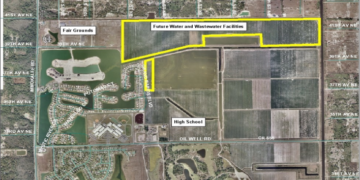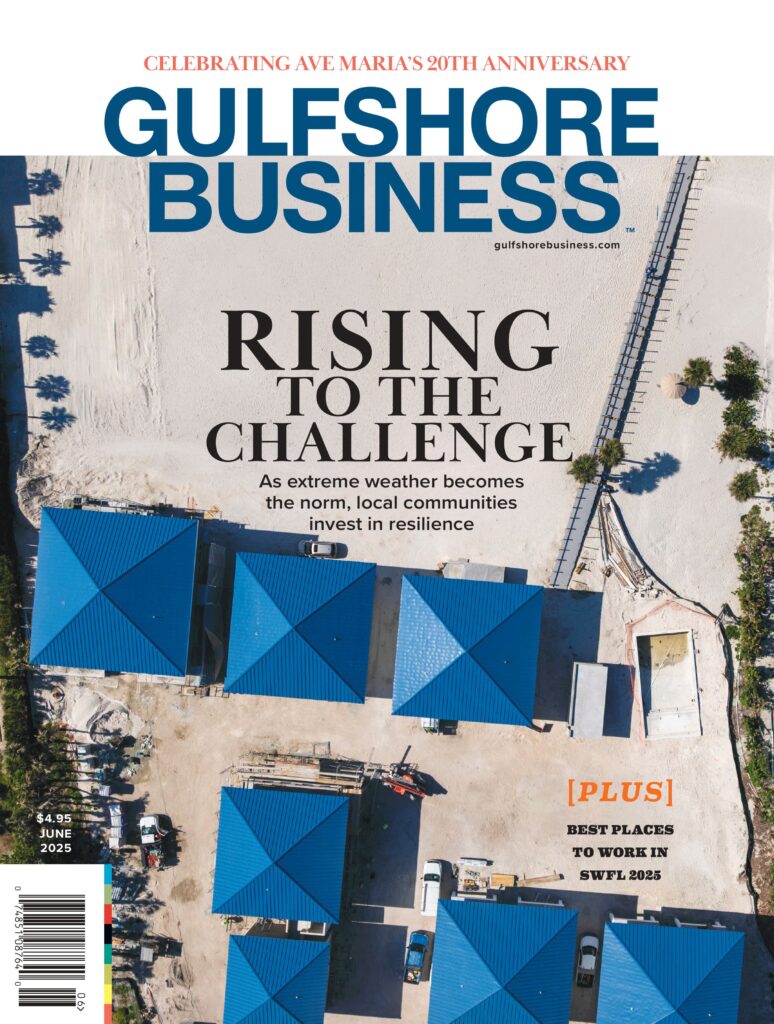Collier County tourism experienced declines in February — the first year-over-year drop this season — with tariff, economic and border concerns prompting a 23% decrease in Canadian visitors, usually a top market.
February 2025 tourist development tax revenue, the latest data, totaled $6.46 million, resulting in $16.7 million year to date. Occupied room nights decreased by 2.8% year over year to 76.6%, but when adjusted for the extra leap year day in February 2024, it amounted to a 0.6% increase. And average daily revenue per room declined 5.9% year overyear, prompting an 8% decrease from February 2024.
“While we’re seeing some softening in specific segments, the outlook remains cautiously optimistic,” Jay Tusa, director of the Naples, Marco Island, Everglades Convention & Visitors Bureau, told the Tourism Development Council on April 15. “Internationally, there has been a noticeable shift in sentiment, particularly among Canadian travelers.”
Tusa attributed the February decline in Canadian visitors to uncertainty around tariffs, increased border scrutiny and economic concerns, including the weak Canadian dollar.
President Donald Trump imposed a 25% tariff on Canadian automobiles, steel and aluminum and 10% on energy, prompting Canada to counter in March with reciprocal 25% tariffs on steel, aluminum, computers, sports equipment, food items and other items.
Tusa said February visitation from Canada decreased about 23% compared with last February. “However, the destination remains top of mind and Canadian tour operators have not reported widespread cancellations,” he said, noting cancellations were due to timing and perception.
James Brendle, project director of Downs & St. Germain Research, a tourism partner, told the TDC Canadian-based travel agencies are reporting a 70% to 90% drop in business in the near term, but that represented business that would have taken place in the next few months being postponed to later this year, or next year.
 In January, he said Tourism Economics, a respected industry partner, predicted a 9% increase in international visitation in 2025, but by February, they’d revised it to a 5% drop.
In January, he said Tourism Economics, a respected industry partner, predicted a 9% increase in international visitation in 2025, but by February, they’d revised it to a 5% drop.
“Their most recent update is closer to a 10% drop,” Brendle said. “Obviously things are changing quickly, so we’ll continue monitoring that.”
Tusa said direct spending by visitors and tourism’s total economic impact declined 4.4% and 4.7% respectively, partly due to a shorter February this year, with Collier also seeing a 3% decline in international visitation.
However, he added, “In the U.K. and Ireland markets, Florida continues to be a preferred destination.
“The geopolitical concerns do not appear to be influencing travel decisions at this time,” he said. “German and Benelux markets are showing mixed trends, with some tour operators shifting volume to Canada, while luxury and boutique operators are remaining steady with their visitation to the U.S.”
Other U.S. areas are experiencing more significant downturns in Canadian travel due to geopolitical concerns, he said, “we’re lucky in where we are and that people still want to come here.”
He noted interest in attending International Pow Wow, a top international inbound travel-trade show that drives international visitation and future travel to the U.S., is consistent with last year, with more than 270 tour operators registered.
For the first quarter of 2025, October until January, group meetings decreased about 25% compared to the same period last year. “We’ve not seen cancellations, only some postponements,” Tusa said, noting a group with Canadian and Mexican representation postponed an event until next year.
Air service at Southwest Florida International Airport continues to show encouraging trends, he said, although there were minor adjustments, including Air Canada downsizing one RSW flight, but there were no significant reductions in overall service. Lufthansa’s RSW routes are performing well, he said, with passengers increasing month over month and future bookings rising.
Domestically, seat capacity for the summer is up compared with last year, he said, and airports report stable passenger volumes overall.
“So, while the summer is currently looking a bit soft, especially for weddings and smaller events, there are no major red flags at this time,” Tusa said. “We’re closely monitoring these trends and maintaining open communication with our partners, both locally and abroad, to ensure we are positioned to respond as needed.”





